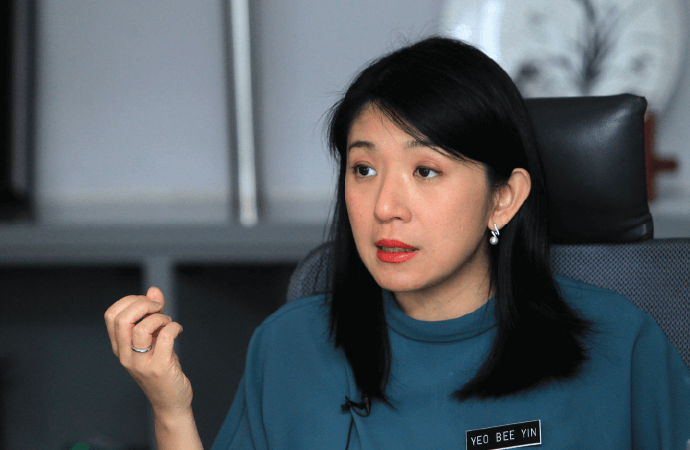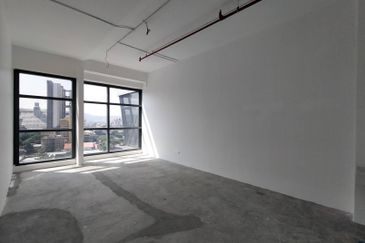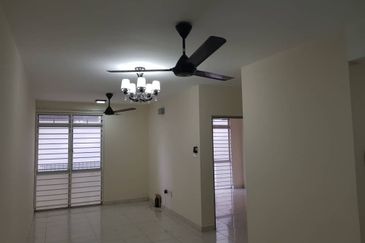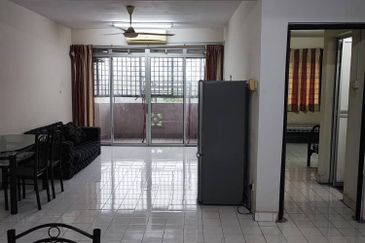
KUALA LUMPUR (Sept 17): The Cabinet has approved a 10-year masterplan to reform the domestic power industry, in which the government will now stop approving new independent power production projects that come with power purchase agreements (PPA).
Dubbed as Malaysia Electricity Supply Industry 2.0 (MESI 2.0), the main feature of the masterplan is to introduce liberalisation across the industry from fuel sources, generation to transmission and distribution and retail in Peninsula Malaysia. And it will also encourage and facilitate the supply of green energy in the country.
With details yet to be ironed out, it is still unclear if the initiatives will result in lower electricity tariffs, which is already quite competitive currently. By the same token, liberalisation will help to enhance efficiency along the value chain, which in turn is expected to drive down production costs.
Speaking in a briefing last Friday, Energy, Technology, Science, Climate Change and Environment Minister Yeo Bee Yin revealed that the key reform initiatives are:
- Allow generators to source own fuel to optimise cost;
- Move from PPA regime to capacity and energy market;
- Establish third party access framework and network charges for grid to allow third party using the infrastructures; and
- Facilitate green energy producers and consumers.
Bringing down fuel costs
Independent power producers (IPPs) can source coal and gas from third parties instead of getting the supply from Tenaga Nasional Bhd (TNB) under the PPAs.
To encourage IPPs to source cheaper fuel, any cost-savings will be shared between end-users and the IPPs — although the ratio and exact mechanism has yet to be finalised.
According to Yeo, the current model does not encourage IPPs to source for cheaper fuels, as fuel source and cost increments are being taken care of by the PPA signed and the implementation of the imbalance cost pass-through (ICPT) mechanism, in which tariff will be adjusted in line with the fuel costs.
Fuel costs make up 42% of our electricity tariffs. In 2018, coal represented 57.5% in electricity generation mix in the peninsula, followed by natural gas 38.5% which is sourced from Petroliam Nasional Bhd (Petronas).
The Energy Commission (EC) will offer supplementary agreements to IPPs to enable them to procure their [of] own coal and gas as soon as the first half of 2021. “It is up to the IPPs to decide if they want to source fuel by themselves.”
“The IPPs could form a consortium to buy their own coal ... if they want they can do that,” said Yeo. “Anyone can start the pilot in [the] fourth quarter 2020.”
No more risk-free PPAs
In the past, PPAs provide IPPs with guarantee of capacity payment (fixed payment to set up plant and make sure it can generate) and energy payment (payment for how much power is actually supplied).
Yeo revealed that the government is doing away with PPAs that offer guaranteed capacity and energy payments. This means future PPAs will comprise capacity payment, while excluding locked-in energy payments.
By doing that, it ensures security of supply, while also allowing Single Buyer entity — the main electricity off-taker — to always prioritise plants that can generate power at a cheaper price. Theoretically, this would drive down electricity tariff.
Future PPAs will also have much shorter tenure, as opposed to the 21-year tenure practised previously.
Malaysia currently has 25 long-term PPAs, of which two are yet to be built — namely Tadmax Resources Bhd’s 1,200 megawatt (MW) power plant in Pulau Indah, Selangor and THB Power Sdn Bhd’s 1,400mw plant in Gurun, Kedah.
The government also closed the open tender for the third round of Large Scale Solar (LSS3) last month.
The ministry expects future PPAs to be rolled out via capacity auction by end-2023 at the earliest. “It is a long timeline because we have a huge reserve margin of over 30%,” said Yeo.
Pausing PPA issuance will help the peninsula optimise its reserve margin to 25% by 2025, thus reducing the ratio of capacity payment and theoretically, the regulated tariff.
Meanwhile, power producers with excess capacity or with expired PPAs can utilise the improved New Enhanced Dispatch Arrangement platform (NEDA+) to sell both capacity and energy via spot contract to the Single Buyer, which will then distribute electricity to retailers.
Third party access to transmission grid
For now, the Single Buyer structure remains in place until TNB’s transmission and distribution assets is opened for third-party access (TPA) by non-renewable power producers.
Meanwhile, renewable energy (RE) plants will have a quota of a combined 100MW to secure from direct buyers for their electricity generation as much as the first quarter of 2020.
“This is a plus point among multinational companies, which are looking to maximise their renewable energy mix in the Asean region,” said the minister. “They can get it in Malaysia.”
It is also in line with the government’s vision to increase its green energy generation mix to 20% by 2025, from 2% currently.
An RE buyer can sign a third-party contract (TPC) with an RE supplier and TNB to acquire a minimum of 20MW directly from the supplier, while TNB will be paid a certain network charge for renting out its grid.
Beyond that, the government expects to come up with a TPA framework by end-2022. The ministry however did not commit to a specific deadline to roll out the TPA for all power producers.
TNB not the sole retailers
According to Yeo, the pilot to open up the retail segment to supply electricity to end-users is expected to commence in the second quarter of 2021, pending the installation of smart meters and other necessary infrastructures.
Prior to that, TNB will introduce itemised billing (complete break-down of the monthly bill) and time-of-use mechanism which underlines different charges at different hours of a day.
“We see an opportunity for the opening up of [the] retail segment to drive cost efficiency with the roll-out of smart meters and Internet of Things (to better organise consumption),” said Yeo.
In Singapore, which has seen a very competitive retail market that offered different packages such as fixed tariff, and charges that are lower than the regulated tariff set by the island-state’s power sector regulator.
But for now, the absence of TPA to the national grid likely means that it is a long way before other players join the game in electricity distribution. Retailers will bid competitively in the energy market, which power producers will tender out the electricity generated for sale, and sell to end-users.
Gradual changes not an overnight switch
The minister said that rebates will continue to the RM40 electricity bill rebate to underprivileged registered under the e-Kasih programme and others.
She stressed that the reforms will not be an overnight switch that will pull the rug from TNB’s feet. It is apparent that TNB will lose its dominant position in the local electricity industry, however Yeo commented that it might not be that easy to compete with the incumbent.
She noted that the existing PPAs will be honoured, and TNB will still be the owner of the regulated transmission and distribution assets in the medium term. There is adequate time for the industry players and financiers to digest the transformation.
To uphold a high-level of transparency, the EC intends to publish Power Planning report every six months. The report will provide updates on existing market participants, supply-demand data, and other recommendations to name a few.
Still, talk of power sector liberalisation is not new. In 2001, Malaysia wanted to introduce a merchant energy market as early as 2005, but the plan was halted after observing some countries experience power crisis incidents upon opening up their power sector.
Strong political will is required to make the 10-year plan a reality, say industry players.

























